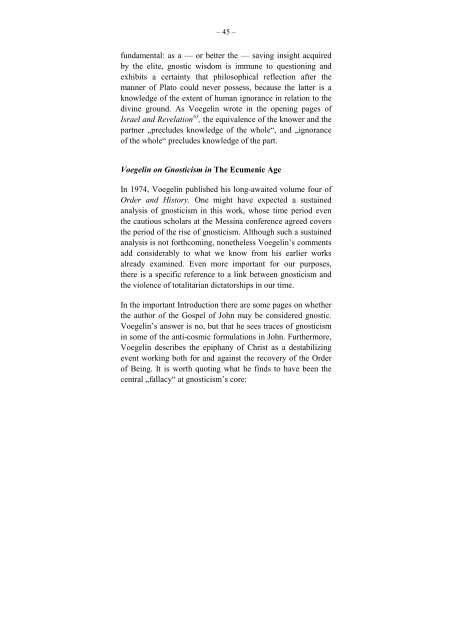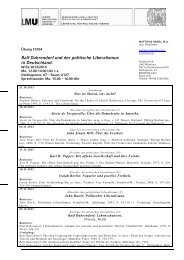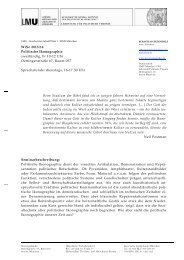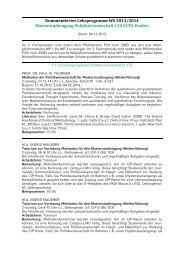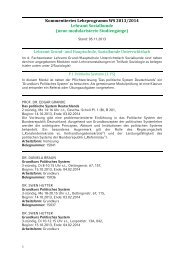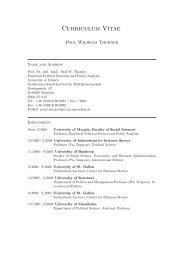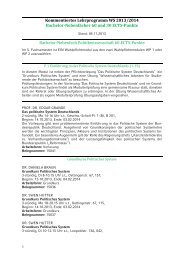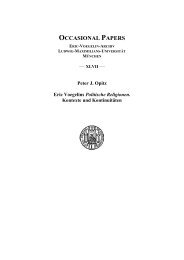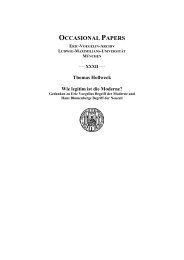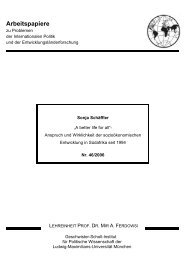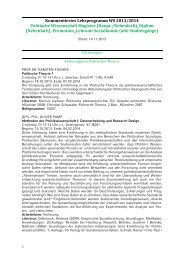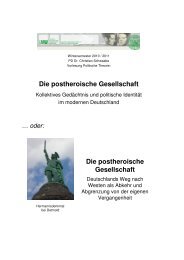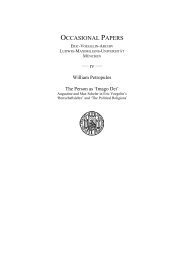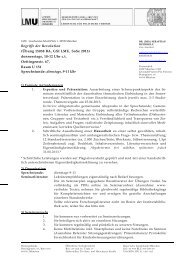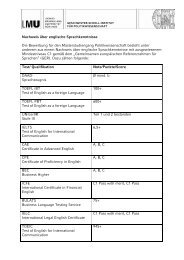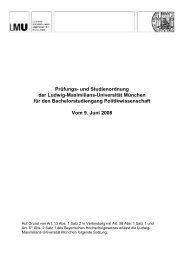Eric Voegelin.pdf - Geschwister-Scholl-Institut für Politikwissenschaft
Eric Voegelin.pdf - Geschwister-Scholl-Institut für Politikwissenschaft
Eric Voegelin.pdf - Geschwister-Scholl-Institut für Politikwissenschaft
Create successful ePaper yourself
Turn your PDF publications into a flip-book with our unique Google optimized e-Paper software.
– 45 –<br />
fundamental: as a — or better the — saving insight acquired<br />
by the elite, gnostic wisdom is immune to questioning and<br />
exhibits a certainty that philosophical reflection after the<br />
manner of Plato could never possess, because the latter is a<br />
knowledge of the extent of human ignorance in relation to the<br />
divine ground. As <strong>Voegelin</strong> wrote in the opening pages of<br />
Israel and Revelation 63 , the equivalence of the knower and the<br />
partner „precludes knowledge of the whole“, and „ignorance<br />
of the whole“ precludes knowledge of the part.<br />
<strong>Voegelin</strong> on Gnosticism in The Ecumenic Age<br />
In 1974, <strong>Voegelin</strong> published his long-awaited volume four of<br />
Order and History. One might have expected a sustained<br />
analysis of gnosticism in this work, whose time period even<br />
the cautious scholars at the Messina conference agreed covers<br />
the period of the rise of gnosticism. Although such a sustained<br />
analysis is not forthcoming, nonetheless <strong>Voegelin</strong>’s comments<br />
add considerably to what we know from his earlier works<br />
already examined. Even more important for our purposes,<br />
there is a specific reference to a link between gnosticism and<br />
the violence of totalitarian dictatorships in our time.<br />
In the important Introduction there are some pages on whether<br />
the author of the Gospel of John may be considered gnostic.<br />
<strong>Voegelin</strong>’s answer is no, but that he sees traces of gnosticism<br />
in some of the anti-cosmic formulations in John. Furthermore,<br />
<strong>Voegelin</strong> describes the epiphany of Christ as a destabilizing<br />
event working both for and against the recovery of the Order<br />
of Being. It is worth quoting what he finds to have been the<br />
central „fallacy“ at gnosticism’s core:


